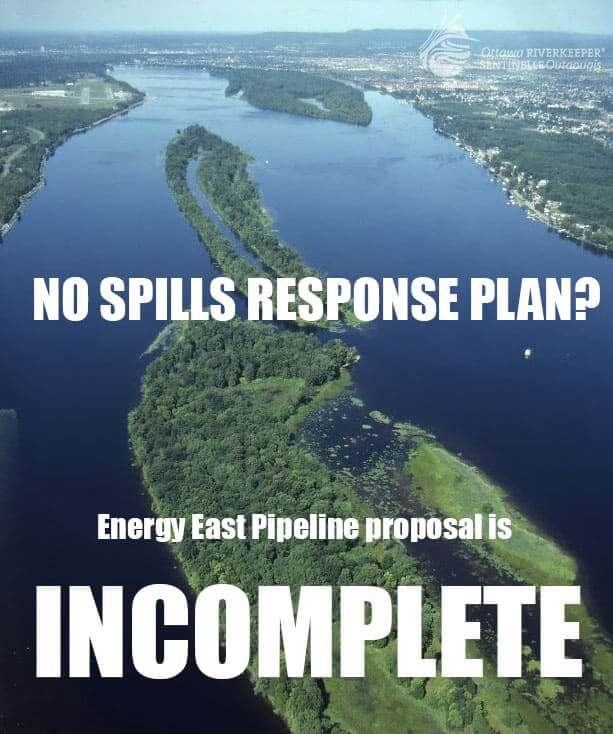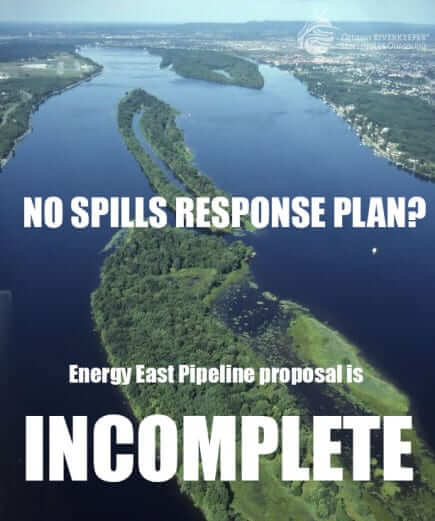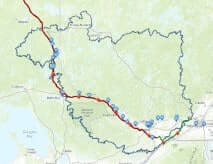Posted: February 26, 2015
What’s up with the Energy East Pipeline?

We believe that a spills response plan is one of the most critical components to scrutinize when deciding whether to approve this project but TransCanada has not submitted one.
Ottawa Riverkeeper and over 350 highly engaged people participated in the January 22 public meeting organized by the Ontario Energy Board (OEB) to discuss citizens’ views on TransCanada’s proposed Energy East project. The meeting was one of seven community discussions held along the proposed pipeline route (in Ontario) to help inform the Ontario government’s position as intervener in the National Energy Board (NEB) hearing about whether or not this project should be approved.
Top of mind for thousands of people who provided input to the Province of Ontario is THE RISK TO OUR WATER. We know that spills happen and that there is widespread concern about roles and responsibilities in the event of a spill, that’s why we were shocked to learn that TransCanada has not submitted a spills response plan. Ottawa Riverkeeper believes the spills response plan is one of the most critical components to scrutinize when deciding whether to approve the project.

At the Provincial Stakeholder Forum we attended in late January we were very interested in the presentation made by Dr. Alan Hepburn, a retired engineer, and a member of the board of directors of the Ontario Rivers Alliance. Dr. Hepburn analysed spill data from Transportation Safety Board records to predict the frequency and size of spills that could result from the Energy East pipeline in Ontario. His conclusions are sobering: “over 22 years, using the current technology, we should expect 8 spills per 5,200 km of pipeline”. See Dr. Hepburn’s full presentation.
Second to water protection, people are concerned about the impact this project would have on Canada’s greenhouse gas emissions. At the community meeting many people were not satisfied with the assumptions taken in the assessment of the project’s effect on greenhouse gas emissions by the independent consultant hired by the province to study this issue. In fact there were several academic experts present who suggested that taxpayers should get their money back from the consultant who did the analysis on climate change impacts for the Province.
Take Action
Given the number of gaping holes in the project proposal, the OEB is waiting for TransCanada to file additional information before the Province puts forward their position on the project. The public comment period has been extended to mid March so you still have time to share your point of view; do you feel comfortable with the risks, do you have local knowledge about the natural environment where the pipeline crosses your region?
If you’re unsure of exactly where the pipeline crosses the Ottawa River watershed, take a look at our interactive map.
Of course it is our Federal government who will ultimately decide the fate of Energy East. You can participate in the National Energy Board hearings but you must apply before March 3. Ottawa Riverkeeper is applying to bring forward our concerns about how TransCanada will protect the surface and groundwater that flows through our communities and our watershed.
Yours sincerely,
Meredith Brown and Stephanie Bolt on behalf of the team at Ottawa Riverkeeper
< Previous post Next post >

